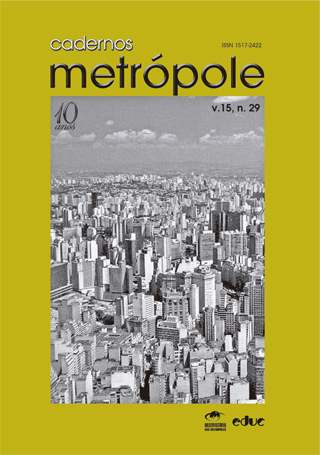Territorial segregation, statistical knowledge and urban governance. A Foucauldian approach to the cases of France and Portugal
Keywords:
territorial segregation, council states, statistics, urban governanceAbstract
This article is the result of a reflection on the official statistics produced for a better understanding of the territorial segregation that has developed in the last decades in France and Portugal. The point of departure is the idea that the main concerns and the methods adopted in the construction of the statistical knowledge reflect the epistemological and political changes that characterize urban intervention and planning. Firstly, the concept of territorial segregation is discussed, and then, using a Foucauldian approach, the relations between statistical knowledge and the exercise of power are analyzed. Statistics are perceived as a technology of governability in the service of urban governance, focusing on segregated urban territories. This technology is deeply committed to control and public visibility as political strategies.Metrics
Downloads
How to Cite
Issue
Section
License
A revista não tem condições de pagar direitos autorais nem de distribuir separatas.
O Instrumento Particular de Autorização e Cessão de Direitos Autorais, datado e assinado pelo(s) autor(es), deve ser transferido no passo 4 da submissão (Transferência de Documentos Suplementares). Em caso de dúvida consulte o Manual de Submissão pelo Autor.
O conteúdo do texto é de responsabilidade do(s) autor(es).


